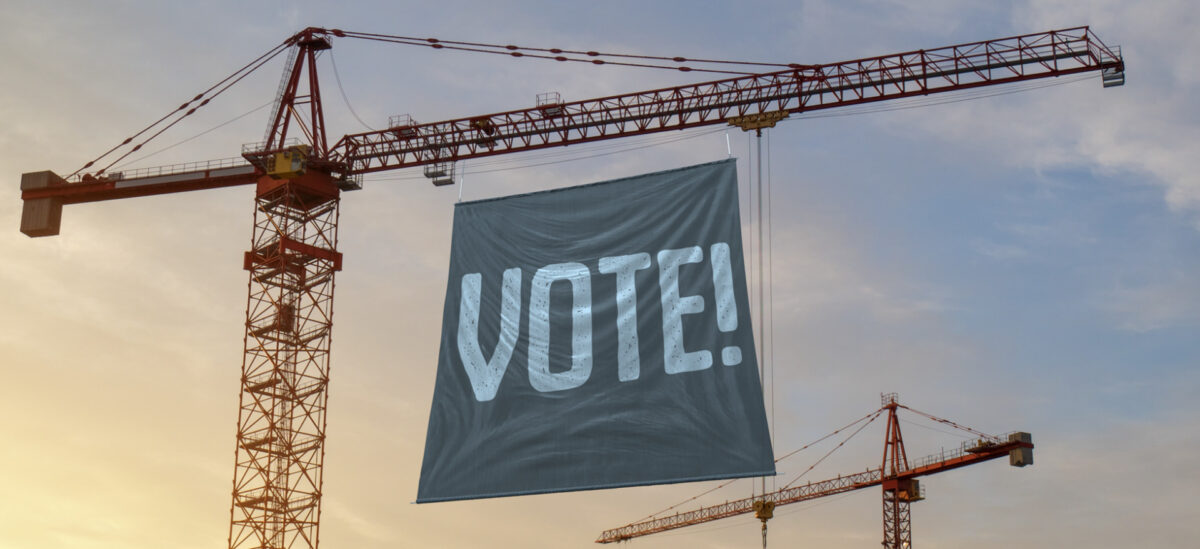Conflict of interest within municipal politics

A municipal election is supposed to be about expressing your support for a candidate, for their vision of your city and community.
Over the last few years, it has become clear that some members of Council have a real or perceived conflict of interest. While some have sworn that donations to their election campaign have had no impact on their decision-making, that is hard to rationalize when the then head of the planning committee received 95% of their donations from developer-related contributions and when a key member of the powerful Finance and Economic Development Committee, Transportation, Environment and Planning committees was funded by the same group to the tune of 99% of their donations. There may not be a conflict of interest, but there is every appearance of one.
This is a problem that leads to the public’s loss of trust in their elected officials. They cannot trust that decisions are being made in their best interests if there is such an apparent conflict of interest.
Conflict of interest, real or perceived, is about trust. We trust that elected officials will act in the public interest only until we find out that their behaviour tells us otherwise. We ask people running for election to tell us who is funding them to prevent later disappointment.
This lack of trust shows up at the polls. Voter turnout is notoriously low with 2018 being a measly 43% of eligible voters showing up. This is especially important since, as Shawn Micallef notes, municipal politics is the branch of government that has the biggest impact on our daily lives.
One of the major discussion points in the election surrounds the topic of election finance. Some mayoral candidates have stated that they won’t accept donations from developers. Another has held campaign events with $1,200 “suggested” donations held in the private homes of some of Ottawa’s active business leaders. They may not be developers, but there is a pecuniary interest being presented that should cause some to raise questions.
It makes sense to ask how decisions will be affected but calling developer donations inherently evil is lazy. We demonize developers for building housing while we ask for more housing to be built. Once social commentary moved past that, as though it’s accepted truth, we start to demonize the people who work with developers. That’s a relationship that needs to be reset.
If a developer is someone who develops real estate, then the federal, provincial and municipal governments are developers, as are their crown agencies, in addition to conventional for-profit developers. It is the responsibility of our elected officials to manage the application of rules. In the context of election finance, the rules are clear.
Many of my clients are developers. Some are public sector levels of government, and some are for-profit developers who have a goal of building a project, creating stores, offices and homes to meet the needs of our community.
Candidates for office must be clear on where they draw the line and what they are implying. If they are not accepting donations from developers, does that include architects and engineers hired by them? I’ve been prevented from donating to some election campaigns because of my client base. That denies me an opportunity to support candidates I believe in.
Carpenters, plumbers, masons, painters, and roofers all work for developers. Are they prohibited from donating to election campaigns? How about lawyers who deal with real estate closings or purchase and sale agreements?
Should there be a distinction between a developer and someone who is an investor in development projects? Is anyone connected with the design or construction industry prohibited from participating in democracy?
The latest figures suggest that there are some 33,000 construction jobs in Ottawa. As of 2018, architecture, directly and indirectly, affects 14% of the Ontario GDP, contributing $2.2b of economic activity. Should all those employed by this sector have no moral right to donate to election campaigns?
Perhaps we should debate the merits of how elections are financed. Quebec’s model sets a maximum annual donation of $100 per person with the government contributing an allowance to each candidate. Or maybe we could have a clearer conflict of interest rules and then enforce them vigorously.
We need to rethink the relationships between not just elected officials and developers but between those vying for office and those who have a clear public interest in supporting positive change.
This article was also published in the The Ottawa Citizen.
Toon Dreessen is president of Ottawa-based Architects DCA and past-president of the Ontario Association of Architects. For a sample of our projects, check out our portfolio here. Follow us @ArchitectsDCA on Twitter, Facebook, LinkedIn and Instagram.